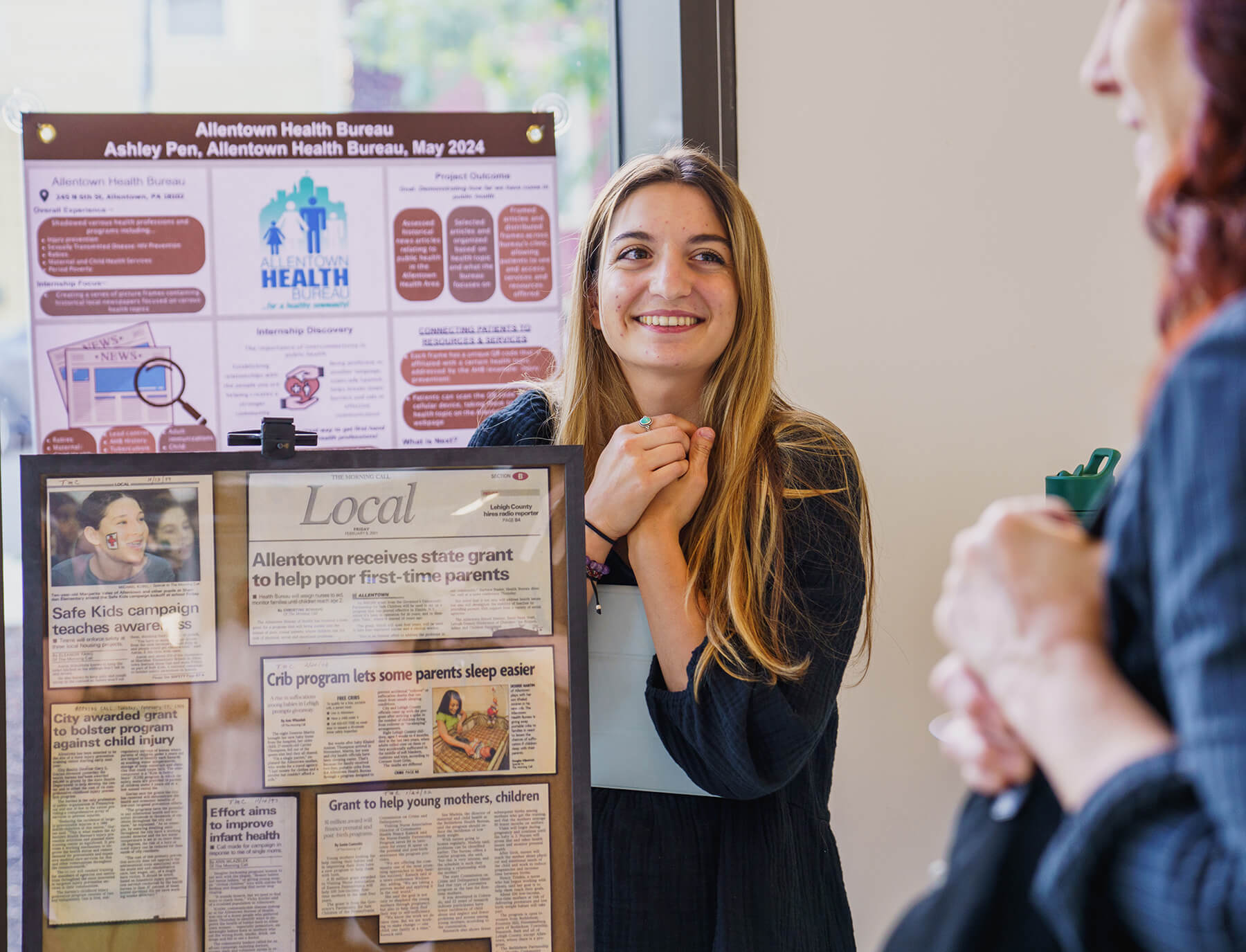You likely know that Lehigh University expanded in 2020 by adding the College of Health. But since its launch, much has happened under the effective leadership of Dean Elizabeth A. Dolan.

Dolan and the College of Health's growing ranks of faculty and staff have brought new momentum to the college's commitment to developing sustainable solutions to improve lives and promote health. Together, through an expanded curriculum and impressive growth, they are advancing health through innovative education, interdisciplinary research, data-driven and technological advancements, and community partnerships.
Here are five things everyone should know about Lehigh’s College of Health:
It's expanding … and isn't slowing down. At its launch in 2020, the College of Health offered one undergraduate major and no graduate programs. Students today have a choice of five majors, including the intercollegiate Integrated Business and Health program, and 10 minors. At the graduate level, offerings include one master's program, one doctoral program, and two graduate certificates, along with collaborative graduate programs across engineering, business, and the College of Arts and Sciences. Explore the complete list of programs.
The college has also expanded its team, growing from eight staff members in 2023 to 12 today and from 27 faculty members in 2023 to 34. The additional offerings and resources since 2020 have correspondingly increased the student body, growing from 64 to 230 undergraduate students and to 43 graduate students.

The faculty is dedicated to uncovering the factors that determine health and illness. To do this, the College of Health employs faculty with expertise in community-based participatory research, the multiple determinants of health, epidemiology, health policy, biostatistics, and health data science.
The faculty's areas of expertise encompass a broad spectrum of critical topics, such as Indigenous peoples' health, environmental health, maternal and infant mortality, independence for individuals with disabilities, infectious and chronic diseases, mental health concerns of immigrant and aging populations, and the complexities of addiction.
- 100% of students gain experiential learning opportunities. The College of Health devotes 25% of its undergraduate students' credits to experiential learning. Providing learning opportunities outside the classroom is crucial preparation to succeed in the healthcare field, as it gives students a well-rounded understanding of health and wellness.

Thanks to donations and endowments, the College of Health offers funding for external experiential learning opportunities to make learning outside the classroom accessible to all students.
Students are prepared for successful careers in the high-demand healthcare market. The health sector accounts for 18% of U.S. GDP, and from 2019 to 2029, employment opportunities in the health sector are predicted to grow by 15%, resulting in strong demand for graduates.
The College of Health educates students for these careers with a deep understanding of the multiple determinants of health, experience working with communities, and a strong foundation in data analytics.
- Alums have inspired and funded many of the most successful initiatives since the College of Health launched. With over 3,000 working in health roles, Lehigh alums have supported the College of Health from its inception. They continue to influence its success by mentoring students. Many others come to classes to share their experience, expertise, and career paths. They also host and fund internships and facilitate partnerships at the college level.
Want to get involved? Learn more about how you can contribute to the Healthcare Alliance by visiting its website, and email incoh@lehigh.edu with questions about funding, internships, and partnerships. And lastly, you can help by spreading the word about the College of Health!

Story updated on January 13, 2025; Originally published on October 19, 2023.


